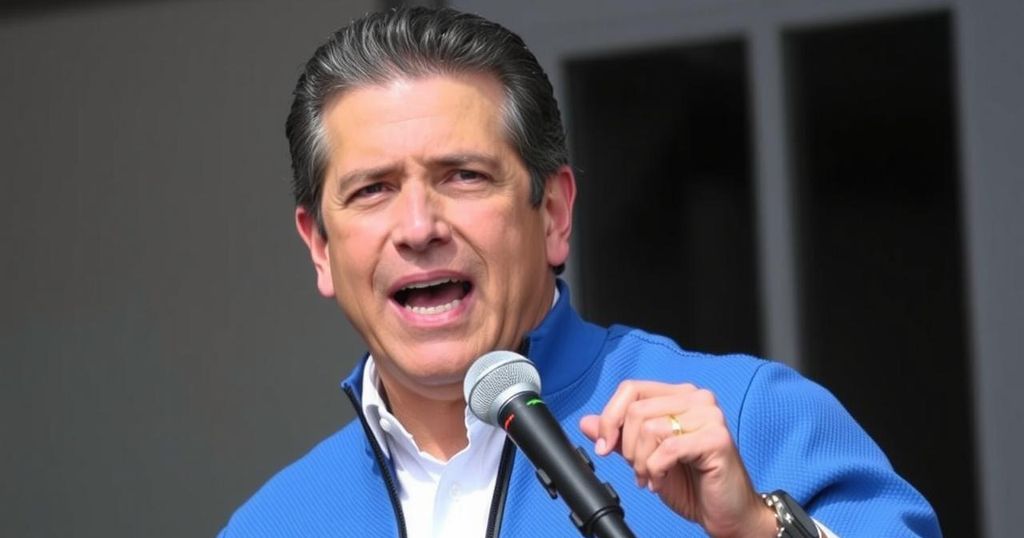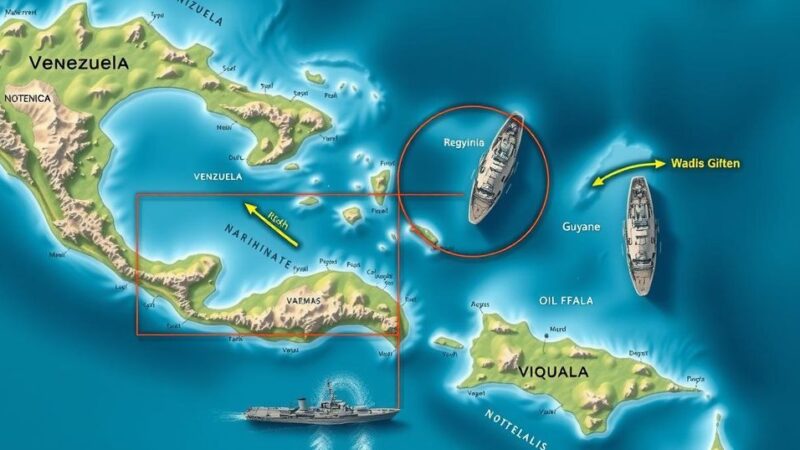Edmundo González, the U.S.-recognized winner of last year’s Venezuelan presidential election, began a tour of Latin America as Nicolás Maduro prepares for a controversial third term. In Buenos Aires, he addressed supporters and met with Argentine President Javier Milei. Facing arrest warrants and a reward for his capture from Maduro’s government, González aims to raise awareness about oppressed Venezuelans and garner regional support against the regime.
Edmundo González, the Venezuelan opposition leader acknowledged as the victor of last year’s presidential election by the United States, commenced a Latin American tour on Saturday, mere days before Nicolás Maduro is expected to take the oath for his third term amidst international condemnation. In Buenos Aires, hundreds of Venezuelan expatriates adorned in their national colors gathered at the Plaza de Mayo, anticipating González’s departure from a meeting with Argentine President Javier Milei, a fervent supporter of the opposition.
A retired diplomat, González fled to Spain in September after facing an arrest warrant post-election, in which the Maduro-controlled National Electoral Council declared him the loser. González’s potential return to Venezuela, where he seeks to be inaugurated, remains uncertain as he navigates the challenges posed by Maduro’s regime, which possesses dominance over state institutions and military forces. Recently, Maduro’s administration intensified its pursuit, offering a $100,000 reward for information on González’s whereabouts.
During his arrival in Argentina, González expressed solidarity with Venezuelans imprisoned due to the government’s crackdown, promising to address the plight of five Venezuelan opposition figures currently sheltered in the Argentine embassy in Caracas. The U.S. and most European governments contest the legitimacy of the election results, highlighting that the electoral authorities failed to release comprehensive data. Notably, opposition data collected from 85% of electronic voting machines indicates that González won decisively.
At 75 years old, González was a political unknown before stepping in for María Corina Machado, who was barred from the election. Following his discussions with President Milei, he is scheduled for talks with Uruguayan President Luis Lacalle Pou, continuing his mission across Latin America to garner support for the opposition in Venezuela.
The political climate in Venezuela has been tumultuous, particularly surrounding the legitimacy of elections and the leadership of Nicolás Maduro. Maduro’s government has faced accusations of corruption and repression, leading to civil unrest and the emergence of a fragmented opposition. The U.S. and various international entities have refused to recognize the legitimacy of Maduro’s administration, asserting that the electoral process lacks transparency and fairness. Edmundo González’s rise as an opposition leader marks a significant moment in the ongoing struggle for democracy in Venezuela, reflecting the broader regional implications of authoritarian governance and international response.
In conclusion, Edmundo González’s Latin American tour represents a critical effort to galvanize support for the Venezuelan opposition against Nicolás Maduro’s contentious leadership. The challenges he faces—both from a powerful regime and international skepticism—underscore the ongoing struggle for democratic governance in Venezuela. González’s appeals for solidarity, coupled with tangible support from allies like Argentina and Uruguay, highlight the intricate dynamics of regional politics in addressing the Venezuelan crisis.
Original Source: www.clickondetroit.com






